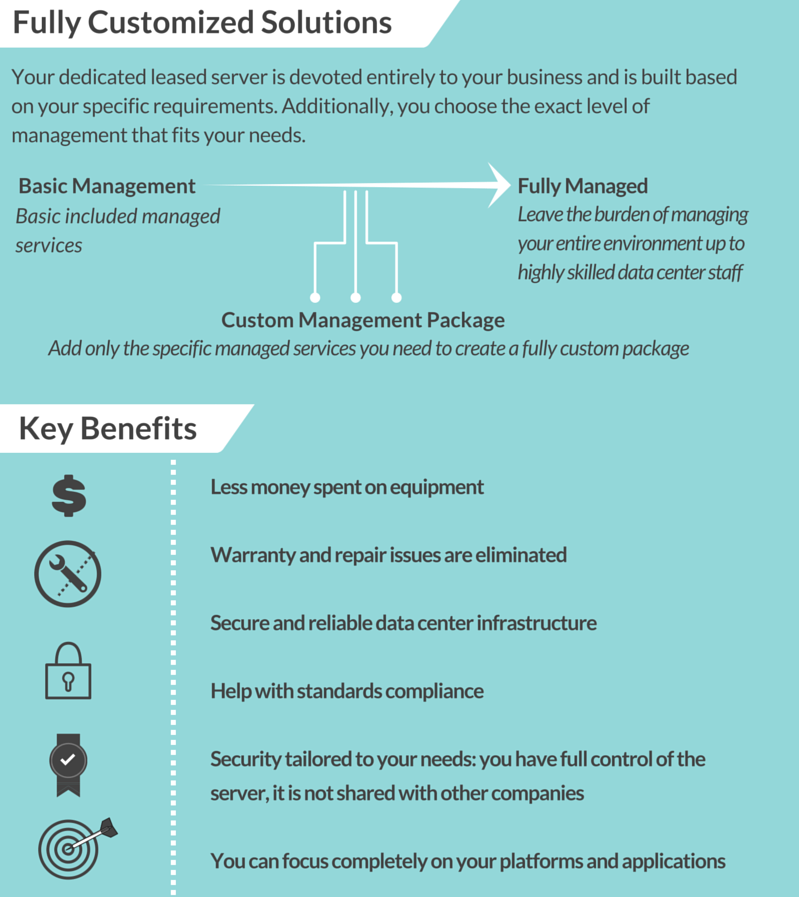In part 1 of Back to Basics, we discussed colocation hosting. Now for part 2 we will cover dedicated hosting. Recall the trade offs described in part 1 that you need to consider:
- Laying out money for large capital purchases
- Having the right skills for managing the infrastructure
- Importance of security & uptime
- Obtaining standards compliance and certifications
- and Convenience
In comparison to colocation, dedicated hosting puts a greater burden on the data center so that your business can focus even more on its core products/services.
What is dedicated hosting?
With colo, you outsource key infrastructure, like improved floor space (environmental), power, and Internet access, but provide your own equipment. With dedicated leased servers, you also get the improved infrastructure, but you lease the server(s). Rather than spend money on equipment, including switches and firewalls, the data center carries that burden. You specify the server requirements, the data center builds it, and you use it. The data center can also take care of any equipment failures and necessary repairs, two less things for you to worry about.
Once you have your dedicated server, then you simply install and manage your platforms and applications. All application management can be done remotely, just as if the equipment was at your location. The level of server management required depends entirely on how much you would like your business to take on. Any good data center will offer a basic level of managed services with all dedicated leased servers, but a host of additional options are available that will take more and more work off your hands. These options include: data backups, managed firewalls, remote power reboot, remote console, security updates, virus protection, managed security, managed disaster recovery, and more.
What are the benefits?
With shrinking IT budgets, especially for capital spending, many companies find dedicated hosting to be a more attractive option than having an in-house data center or colocation. The option becomes even more attractive to those who don’t have the skilled IT staff to handle security concerns, uptime, server repairs, and the like.

Click here to view the full infographic
Is dedicated hosting right for my business?
Ask yourself the following questions:
- Do you need your staff to focus on applications, not IT infrastructure?
- Do you have a desire to focus spending on your core business, not IT infrastructure?
- Do you need to meet standards compliance?
- Do you have high requirements for security and control of your platform?
- Do you need to save costs for higher end implementations? (Dedicated hosting can even save you more than certain cloud offers!)
If you answered ‘Yes’ to most or all of the questions, dedicated leased servers may be the right choice for hosting or outsourcing your IT infrastructure. If not, stay tuned. Next we will discuss cloud hosting services and hybrid environments.
